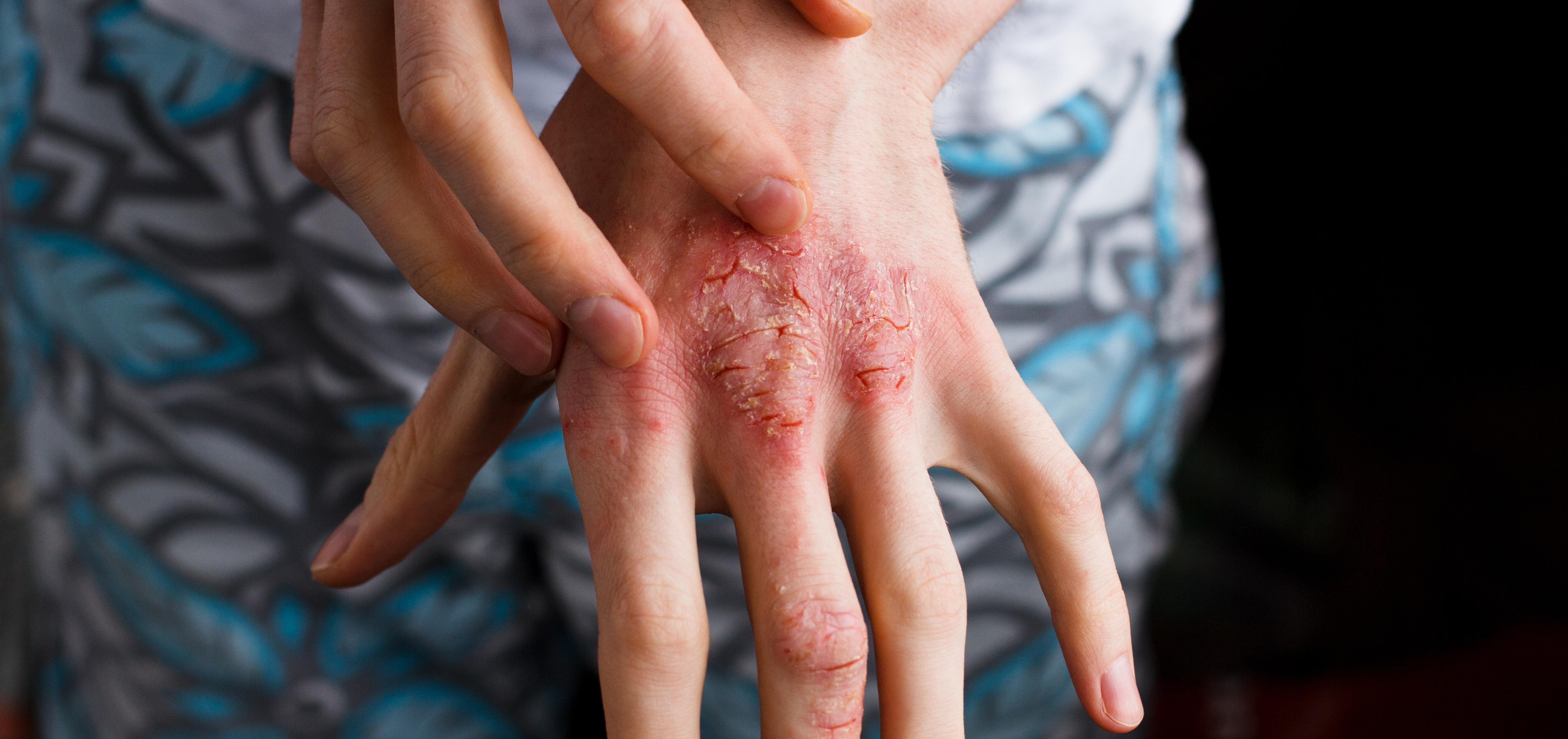
Is It Possible to Have Eczema and Psoriasis At the Same Time?
This Q&A is part of a series highlighting frequently asked questions, answered by a healthcare professional in our community.
We asked: “Can I have eczema and psoriasis at the same time? How would I know?”
Allison Truong, M.D.: Eczema (atopic dermatitis) and psoriasis are both common skin conditions that can cause patches of red, raised, itchy skin, and sometimes it’s possible to have both at the same time.
Without dermatological training, you may not know which you have just by looking at your skin. However, your dermatologist should be able to tell the two apart. Some patients may need a skin biopsy to determine which they have, or to tell whether their skin symptoms are caused by both conditions, eczema and psoriasis.
One clue to distinguish the conditions may be where the red rash appears.
- Psoriasis patches typically are found on the elbows, knees, scalp, lower back, face, the soles of the feet, and palms of the hands. Psoriasis also can affect fingernails and toenails, and, rarely, the mouth.
- Eczema is most likely found in places where the skin bends or stretches such as the inside of your elbows, behind your knees, and in the front of your neck, but it can also present anywhere on the body.
- Another type of eczema or hypersensitivity to a common yeast on the body is called seborrheic dermatitis. It appears where the skin is its oiliest, such as the face, chest, and scalp. In fact, the scalp is one of the hardest places to tell whether the white skin flakes are psoriasis or seborrheic dermatitis because sometimes it’s both.
Both psoriasis and eczema can often be treated similarly for mild cases, but for severe cases, the treatment varies greatly. A proper diagnosis can help your doctor recommend the right treatment to ease your symptoms. Mild to moderate psoriasis and eczema can be treated with topical steroids and light therapy. More severe psoriasis or eczema may require oral or injected systemic medications.
While medications can’t cure either psoriasis or eczema, they can help reduce symptoms of both. Given the availability of effective medications for both conditions, you can have clear skin with adequate treatment, even if you have both psoriasis and eczema.
You May Also Like:
Want to Read More?
Access all of Twill Care’s content, community, and experts for free!
Already a member? Login
Want to Read More?
Access all of Twill Care’s content, community, and experts for free!
sign UP For FreeAlready a member? Login

